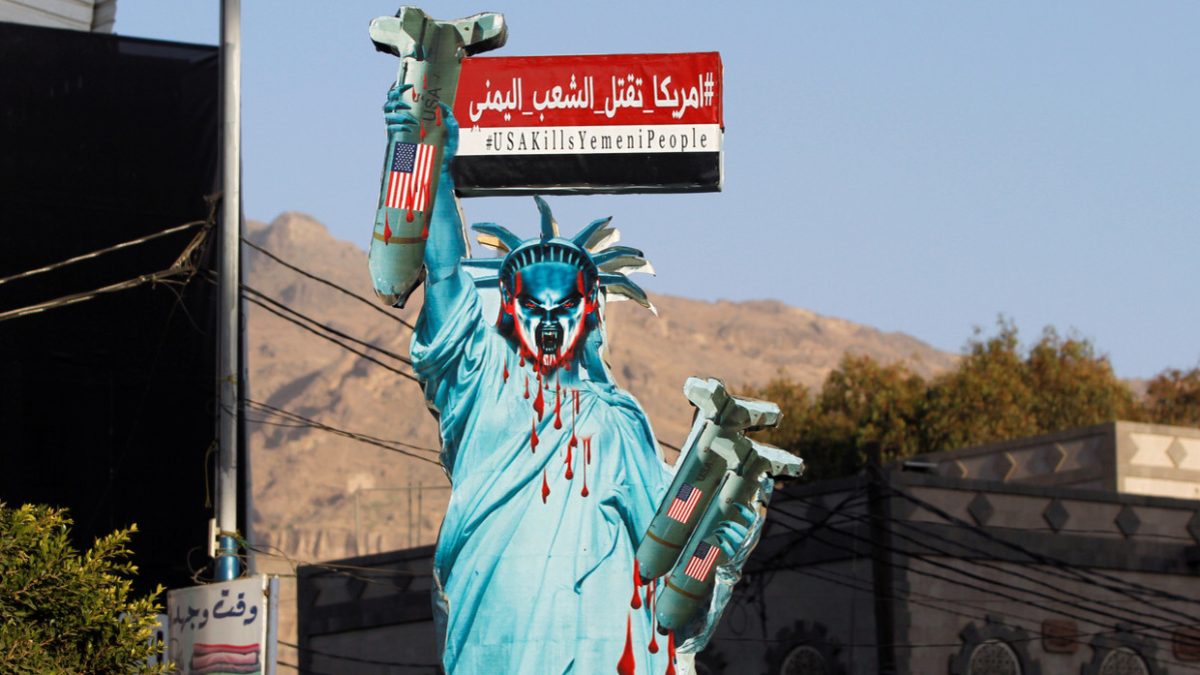“Some Arab and Muslim countries have become a tool in the hands of the US to implement its agendas” across the region, al-Deilami made the remarks in an exclusive interview with Press TV on Saturday.
Many regional Arab regimes have been trying hard to ingratiate themselves with the US by hosting American troops, allowing their soils to be used as launching pads for attacks on their fellow regional nations, the Yemeni envoy said.
Deilami added that some Arab governments in the region have even entered US-facilitated normalization agreements with the Israeli regime, which is Washington’s biggest ally in the region.
The US, in turn, has been providing arms as well as logistical and political support for a 2015-present Saudi Arabia-led war on Yemen, which has killed thousands of Yemenis and turned the entire Yemen into the scene of the world’s worst humanitarian crisis.
“The most important goal with regard to this aggression is to loot Yemen and to divide Yemen, not only into two countries, but into small cantons,” the ambassador stated.
The envoy noted that the Saudi-led aggression is not only targeting Yemen’s popular Ansarullah movement, but it has taken aim at the entire Yemeni nation
The armaments that the US has been providing the invading coalition have included precision ammunition, which the Saudi-led aggressors have been using amply against purely residential areas and other civilian targets.
Elsewhere in his interview, the Yemeni ambassador to Iran said foreign forces in his country were not just Saudis or Emiratis, but also Americans and Israeli troops.
Soon after Riyadh began the war, the Pentagon started assigning a commando unit to the border between Saudi Arabia and Yemen to help the kingdom in the face of Yemeni defense forces’ increasingly sophisticated retaliatory attacks. American military personnel have also been attending command and control centers on the Saudi and Emirati territories, so they can best advise the countries about how to proceed with the war.
Last year, Yemen’s news agency reported that the UAE was helping the Israeli regime set up a center for military and maritime reconnaissance on the strategic Yemeni island of Socotra. And earlier this month, it was reported that Abu Dhabi was constructing a settlement on the island to accommodate dozens of Israeli forces, officers, and military experts.
Deilami added the Saudi-led aggression did not stop with Yemen, adding that the enemy was targeting all the countries in the region.
Many regional officials have warned Abu Dhabi, Riyadh, and others against the consequences of allowing Washington and Tel Aviv into regional equations, asserting that the problems of the region have to be addressed by its own countries.
According to the envoy, Yemeni forces will continue with their resistance against the aggressors until full liberation and independence of the country.
In another part of his interview, Deilami dismissed Western media allegations about the nature of ties between the Yemeni government and Iran.
“They are trying to say that the Iranians are a colonial power and they are doing the same in Yemen. That’s what the [Western] media say,” he said, adding, “This is while there are brotherly and friendly relations between two Muslim nations and two Muslim governments [of Iran and Yemen].”
He reminded that “Iran was the only country that took a stance against the aggression from day one” and is still standing by the Yemeni nation and calls for an end to the Saudi-led war and blockade against the war-torn country.
Saudi Arabia and its allies have been imposing a total blockade on Yemen since 2015 as part of their war of aggression, which seeks to reinstall a friendly regime there.
They have failed to achieve that objective during the past seven years, but have brought about disastrous conditions in the country, which has been described by the United Nations as the world’s worst humanitarian crisis.
